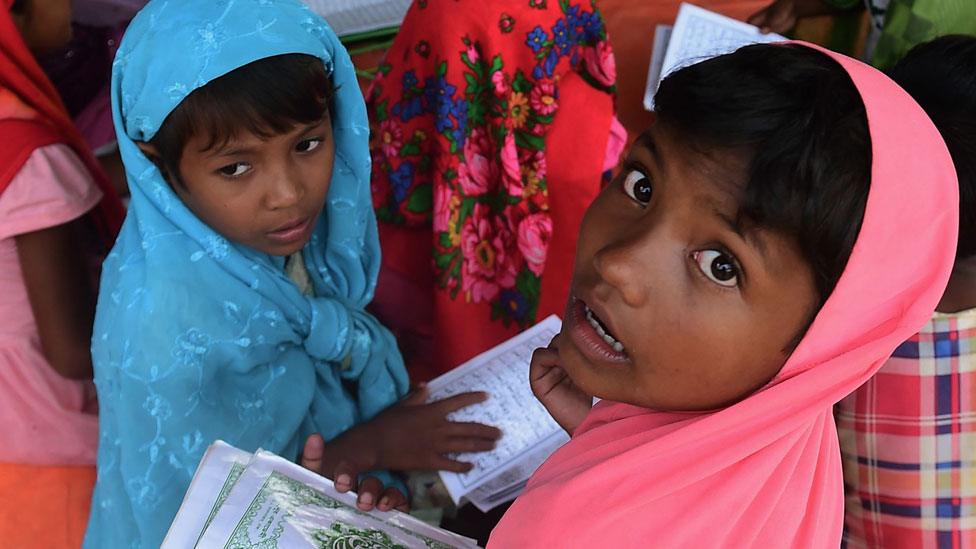Myanmar coup: Aung San Suu Kyi detained as military seizes control
- Published
Myanmar coup: What's happened so far?
Myanmar's military has seized power after detaining Aung San Suu Kyi and other democratically elected leaders.
Troops are patrolling the streets and a night-time curfew is in force, with a one-year state of emergency declared.
US President Joe Biden raised the threat of new sanctions, with the UN and UK also condemning the coup.
The army alleges the recent landslide election win by Ms Suu Kyi's party was marred by fraud. She urged supporters to "protest against the coup".
In a letter written in preparation for her impending detention, she said the military's actions would put the country back under a dictatorship.
The military has already announced replacements for a number of ministers.
On the streets of the main city, Yangon (Rangoon), people said they felt their hard-fought battle for democracy had been lost.
One 25-year-old resident, who asked not to be named, told the BBC: "Waking up to learn your world has been completely turned upside down overnight was not a new feeling, but a feeling that I thought that we had moved on from, and one that I never thought we'd be forced to feel again."
Myanmar, also known as Burma, was ruled by the armed forces from 1962 until 2011, when a new government began ushering in a return to civilian rule.
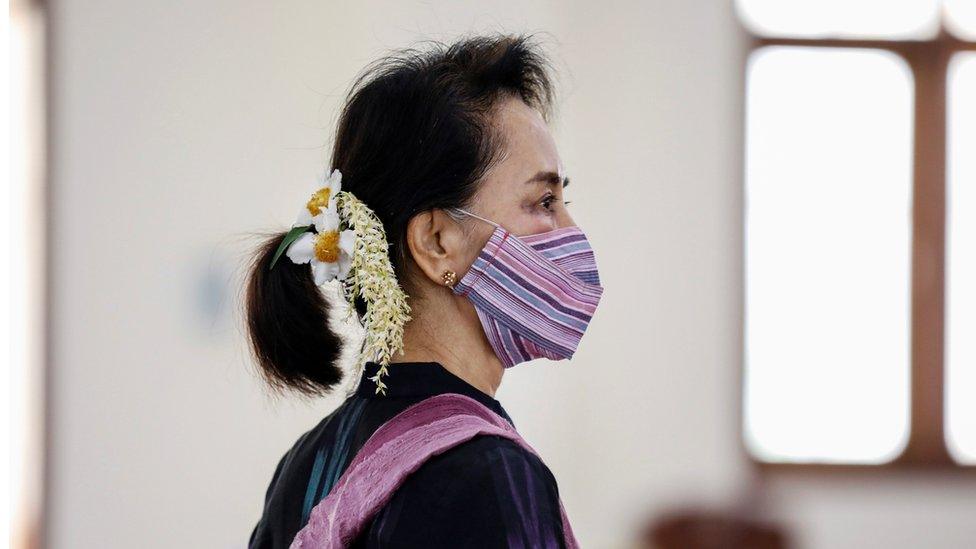
Aung San Suu Kyi, seen here at a coronavirus vaccination clinic in January, is Myanmar's de facto leader
She spent nearly 15 years in detention between 1989 and 2010. She was internationally hailed as a beacon of democracy and received the Nobel Peace Prize in 1991.
But her international reputation suffered severely following an army crackdown on the mostly Muslim Rohingya minority. Former supporters accused her of refusing to condemn the military or acknowledge accounts of atrocities.
How did the coup unfold?
In the early hours of Monday, the army's TV station said power had been handed over to commander-in-chief Min Aung Hlaing.
Ms Suu Kyi, President Win Myint and other leaders of the National League for Democracy (NLD) were arrested in a series of raids. It is not clear where they are being held.
No major violence has been reported. Soldiers blocked roads in the capital, Nay Pyi Taw, and the main city, Yangon. International and domestic TV channels, including the state broadcaster, went off air. Internet and phone services were disrupted. Banks said they had been forced to close.
Later, the military announced that 24 ministers and deputies had been removed, and 11 replacements had been named, including in finance, health, the interior and foreign affairs.
A curfew is now reportedly in effect from 20:00 local time to 06:00 (13:30-23:30 GMT).
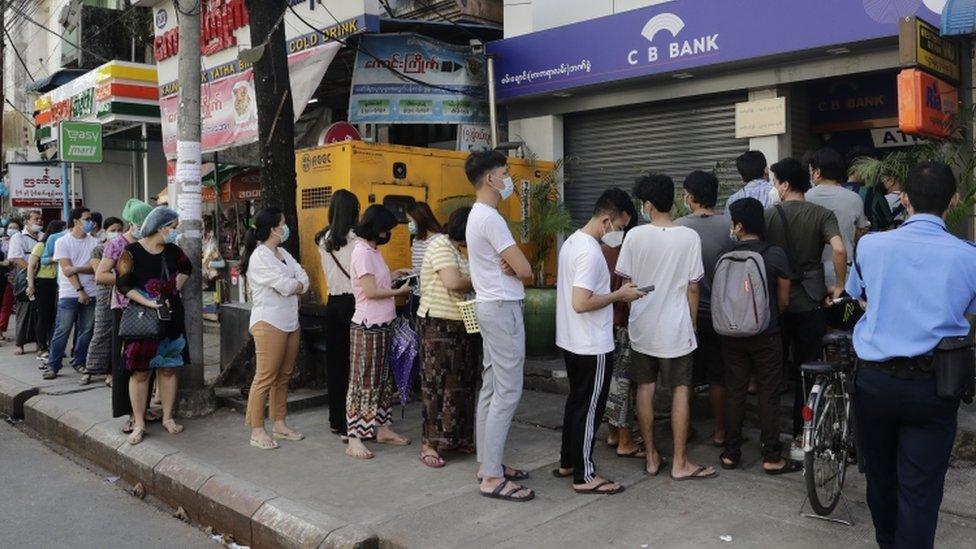
Queues formed at ATMs in Yangon and other cities
The military takeover follows weeks of tensions between the armed forces and the government following parliamentary elections lost by the army-backed opposition.
The opposition had demanded a re-run of the election, raising allegations of widespread fraud that were not backed by the electoral commission.

So why has the army acted now?

So it is official. The armed forces in Myanmar have confirmed that they have carried out a coup d'etat, their first against a civilian government since 1962, and in apparent violation of the constitution which the military promised to honour as recently as last Saturday.
The grievances which have been driving tension between the military and the government are well enough known. The military-backed party, the USDP, performed poorly in last November's general election, whereas the NLD did even better than in 2015.
The timing of this coup is also easily explained. This week the first session of parliament since the election was due to start, which would have enshrined the election result by approving the next government. That will no longer happen.
But the military's longer game plan is hard to fathom. What do they plan to do in the year they have given themselves to run the country? There will be public anger over a coup so soon after an election in which 70% of voters defied the Covid-19 pandemic to vote so overwhelmingly for Aung San Suu Kyi.
Famously stubborn, she is unlikely to co-operate with a gun held to her head. Her ally, President Win Myint, is the only person authorised under the constitution to enact a state of emergency. He has been detained with her.
For the moment the military's action appears reckless, and puts Myanmar on a perilous path.

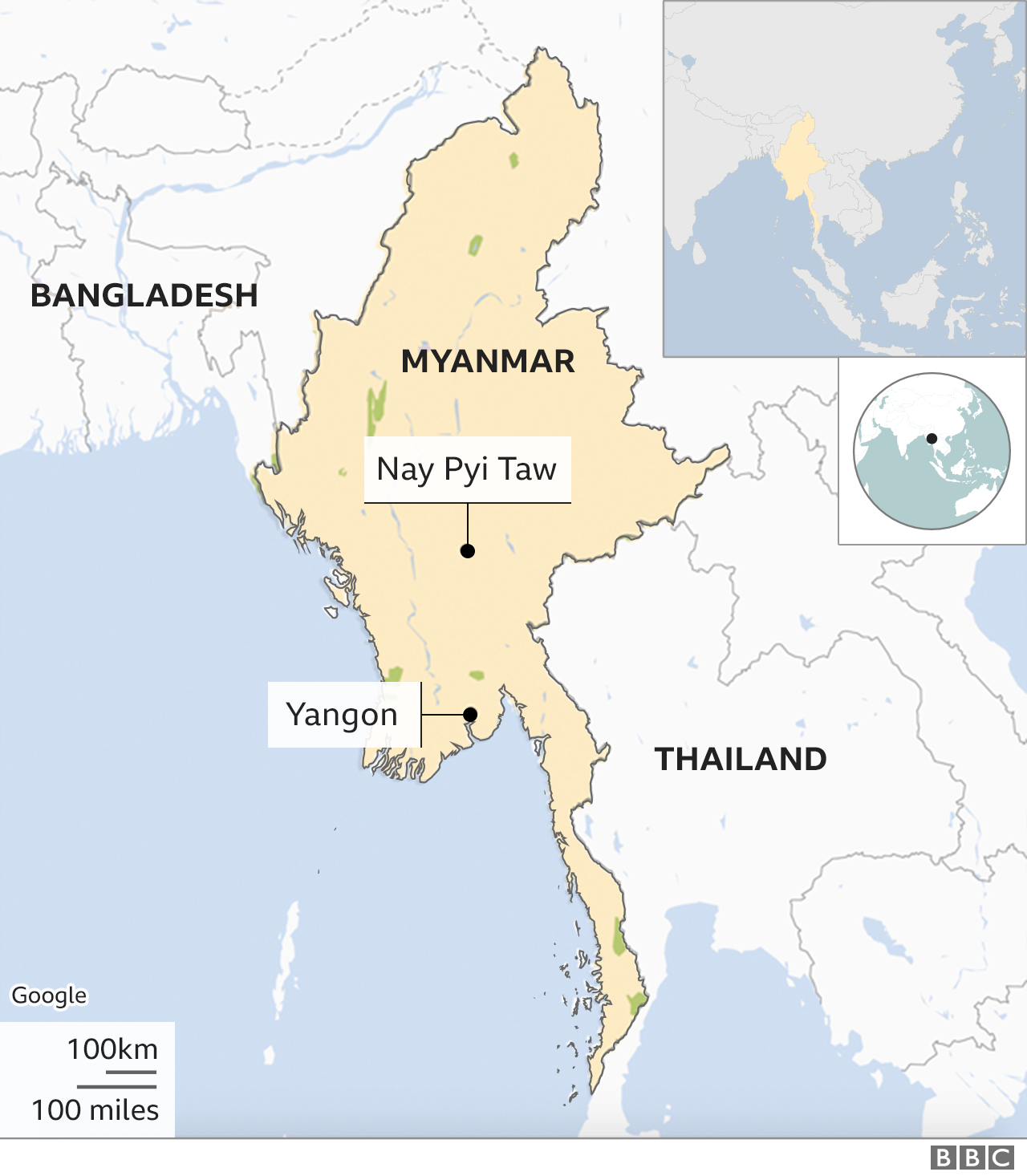

What has the reaction been in Myanmar?
Michael Ghilezan, a partner of a US law firm who lives in Yangon, told the BBC he had expected military vehicles and protests in the city, but there was instead an eerie calm. "The most common reaction from my Burmese friends has been anger. They feel deeply betrayed by the military and the USDP."
This was reflected in other comments from the streets, although there have been some supporters of the army out waving flags in Yangon.
Theinny Oo, a development consultant, told Reuters: "We had a lawful election. People voted for the one they preferred. We have no protection under the law now."
Many people feared giving their names. One 64-year-old resident of Hlaing township told AFP: "I don't want the coup. I have seen many transitions in this country and I was looking forward to a better future."
Author and historian Thant Myint-U tweeted that a door had opened to a "very different future", and he feared for the millions who had been descending into poverty.
Allow X content?
This article contains content provided by X. We ask for your permission before anything is loaded, as they may be using cookies and other technologies. You may want to read X’s cookie policy, external and privacy policy, external before accepting. To view this content choose ‘accept and continue’.

And abroad?
UN Secretary-General António Guterres called the army's move a "serious blow to democratic reforms", as the security council prepared for an emergency meeting. The UN demanded the release of what it said were at least 45 people who had been detained.
Joe Biden released a statement saying, external "force should never seek to overrule the will of the people or attempt to erase the outcome of a credible election".
He said the removal of sanctions over the past decade as Myanmar progressed to democracy would be immediately reviewed, adding: "The United States will stand up for democracy wherever it is under attack."
In the UK, Prime Minister Boris Johnson condemned the coup and Aung San Suu Kyi's "unlawful imprisonment".
Allow X content?
This article contains content provided by X. We ask for your permission before anything is loaded, as they may be using cookies and other technologies. You may want to read X’s cookie policy, external and privacy policy, external before accepting. To view this content choose ‘accept and continue’.

European Union leaders have issued similar condemnations.
China, which has previously opposed international intervention in Myanmar, urged all sides in the country to "resolve differences", while some regional powers, including Cambodia, Thailand and the Philippines, said it was an "internal matter".
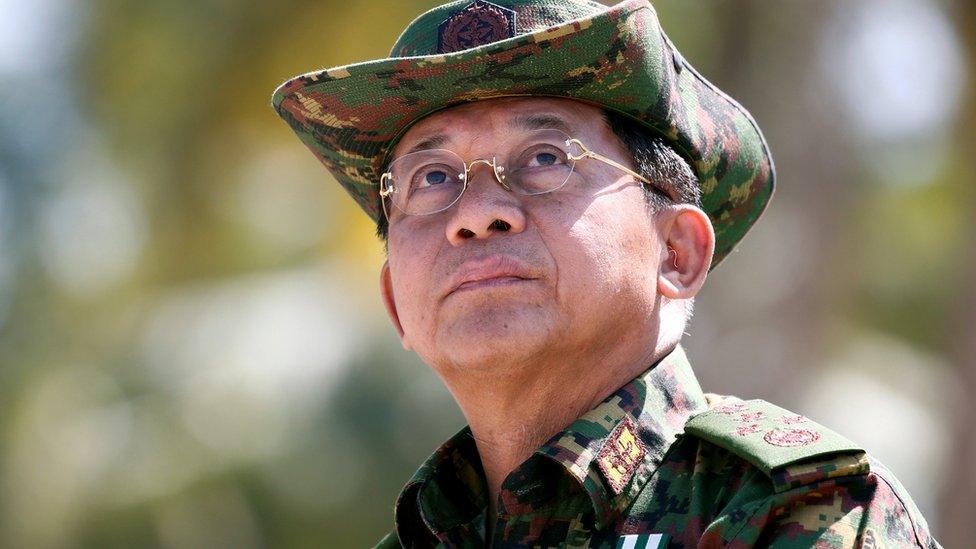
Military chief Min Aung Hlaing is now in power
Who is Aung San Suu Kyi?
Aung San Suu Kyi, 75, is the daughter of Myanmar's independence hero, Gen Aung San who was assassinated just before the country gained independence from British colonial rule in 1948.
She remained popular with the public despite spending years under house arrest.
She was released in 2010, and in November 2015 she led the NLD to a landslide victory in Myanmar's first openly contested election for 25 years and became de facto leader.
How did this peace icon end up at a genocide trial?
In recent years, her leadership has been defined by the treatment of the country's mostly Muslim Rohingya minority.
In 2017 hundreds of thousands of Rohingya fled to neighbouring Bangladesh due to an army crackdown sparked by deadly attacks on police stations in Rakhine state.
Ms Suu Kyi's defence of the military over the widely condemned crackdown lost her much of her international support.

Are you in Myanmar? What have you seen of the coup? Only if it is safe to do so, please share your experiences by emailing haveyoursay@bbc.co.uk, external.
Please include a contact number if you are willing to speak to a BBC journalist. You can also get in touch in the following ways:
WhatsApp: +44 7756 165803
Tweet: @BBC_HaveYourSay, external
Please read our terms & conditions and privacy policy
If you are reading this page and can't see the form you will need to visit the mobile version of the BBC website to submit your question or comment or you can email us at HaveYourSay@bbc.co.uk, external. Please include your name, age and location with any submission.
Related topics
- Published6 December 2021
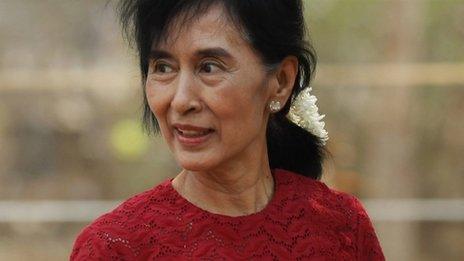
- Published24 December 2019
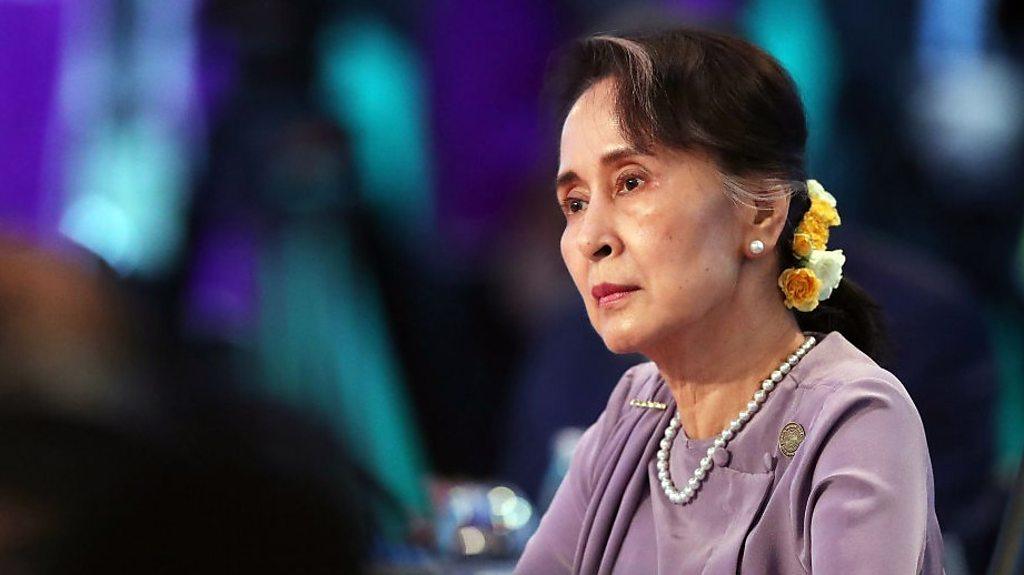
- Published23 January 2020
